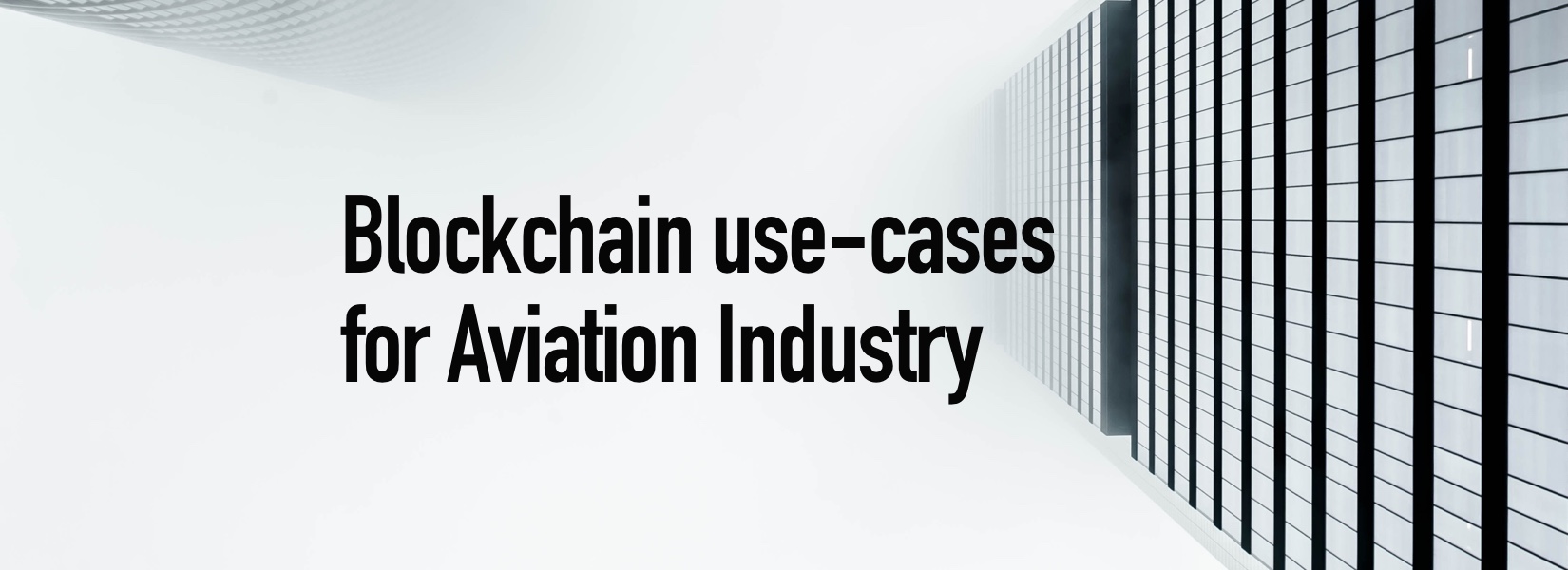Blockchain technology is picking up really fast with aviation companies like Luftansa and the use-cases are consistently expanding as we speak. Here’s a quick list of three major use-cases of blockchain in aviation or the airline industry. Learn more.
Blockchain is driving today’s industry growth and showing the path for the next decade. With industries like manufacturing and banking seeing the use-cases, aviation is no exception. In fact, blockchain, when implemented the right way, could be one of the most powerful technologies for the aviation industry.
Many might think that blockchain was a technology built to handle transactions in the finance industry. But a revolutionary technology like blockchain finds application in almost every industry possible.
Blockchain can be applied to any application where transparency and security are necessary, as the information in the blockchain can be tracked at all times by all the parties participating in the network.
Why blockchain for aviation?
Airline industry runs on mutual trust and the need to protect data in a secure way. This characteristic aligns perfectly with what blockchain has to offer. The airline industry is handling some of the most complex syncing mechanisms between different systems. Data such as the departure data, arrival data and all other details are stored in various systems, which then works in sync to move a single flight out on the runway.
The working of such complex machines, running in sync is what makes blockchain a very potential technology for the aviation industry.
Use-cases of blockchain for the aviation industry
Blockchain being a technology that acts as the “central repository of trust”, could be the most disruptive and creative technology of all time:
Aircraft Maintenance: Blockchain can help manage a virtual authentic copy of the maintenance logs of every part of the plane, where they were sourced from, who handled the part and where is it going from here. This kind of visibility of a part among all the parties in the chain can push the aviation security to a whole different level.
Ticketing and loyalty: Ticketing is at the center of the entire aviation industry. The information that is stored in the data store about a particular user is massive. Utilizing blockchain’s capability, this data can be dematerialized for better performance and tracking. The airline industry can decide using smart contracts to define how a ticket is sold and used in the entire system.
It doesn’t stop there. The airline company can also keep track of their loyal users directly, without having to rely on any third-party in the chain. When the loyalty points are tokenized using blockchain, the customers can redeem their points right then and there for better perks.
Security & Identity Verification: Blockchain has been known for its security from the day it was born. The major reason being the cryptography techniques used, and also the way data is distributed among peers, allowing a no-margin error rate while verifying the transactions in the system.
Data security and aviation are supposed to work in parallel and in sync. Blockchain’s security wrappers are so different from other technologies so far, which protects the information stored in the system authentic and secure.
What’s next:
If you are dealing with the aviation industry, and would like to explore if blockchain is the right technology for your particular use-case, we recommend you to run the Blockchain Business Workshop before you arrive at a concept.
Up next
Why are we hooked to social media? Skcript
/svr/blockchain-use-cases-for-aviation-industry/
/svrmedia/heroes/f/blockchain-aviation.jpg
Skcript
/svr/blockchain-use-cases-for-aviation-industry/
/svrmedia/heroes/f/blockchain-aviation.jpg
